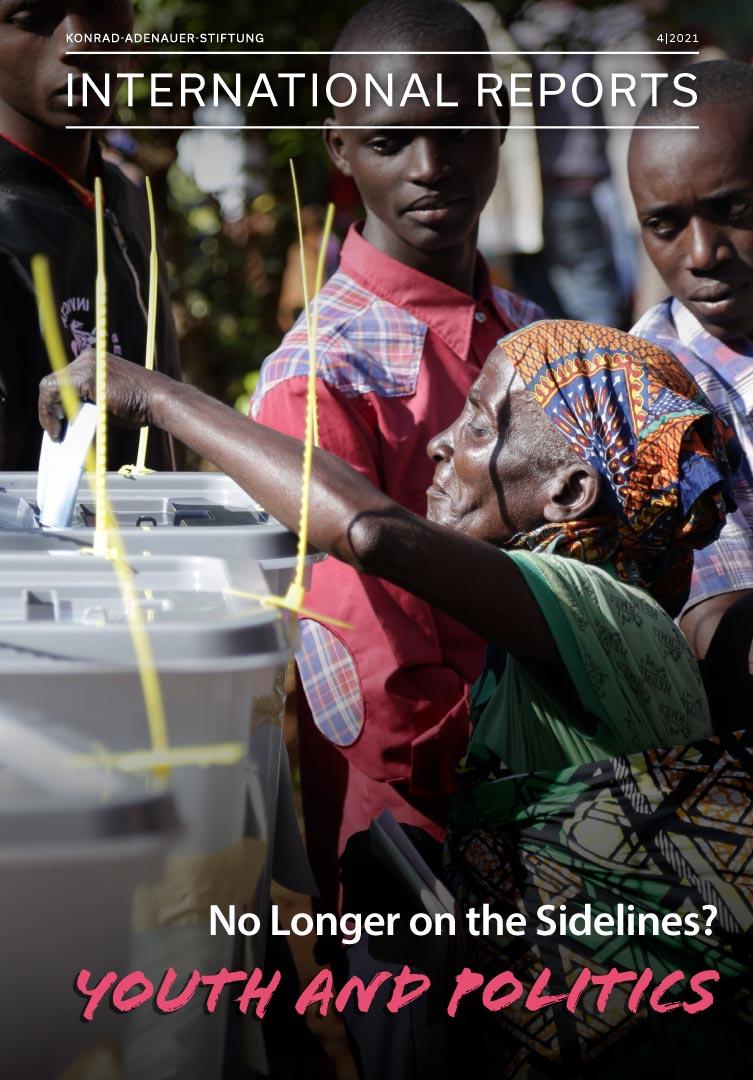If you have been following public debate on youth and politics in Germany over the last few years, you may have gained the impression of a generation of young people who are increasingly committed to standing up for their interests while, at the same time, feeling that their concerns are not being adequately heard. Number one among these concerns: climate change. But can this impression be generalized and applied to youth worldwide? The articles in this issue of International Reports highlight the regional differences between young people’s social circumstances, problems, and opportunities for political participation. And yet we can still observe one commonality across boarders: youth from all over the world want to create positive change for their societies instead of remaining on the sidelines.
View table of contentsAbout this series
International Reports (IR) is the Konrad-Adenauer-Stiftung's periodical on international politics. It offers political analyses by our experts in Berlin and from more than 100 offices across all regions of the world. Contributions by named authors do not necessarily reflect the opinions of the editorial team.
Order details
Our periodical on international politics is published four times a year. We provide you with background information on what is happening in the world – free of charge. Use our registration form and with just a few clicks you can read the digital version of our political journal or order the print version in German or English.
Editor
Dr. Gerhard Wahlers
ISBN
0177-7521
Benjamin Gaul
 benjamin.gaul@kas.de
+49 30 26996 3584
benjamin.gaul@kas.de
+49 30 26996 3584

Head of the Department International Reports and Communication
Rana Taskoparan
 rana.taskoparan@kas.de
+49 30 26 996 3623
rana.taskoparan@kas.de
+49 30 26 996 3623

Policy Advisor for Communication and Marketing





